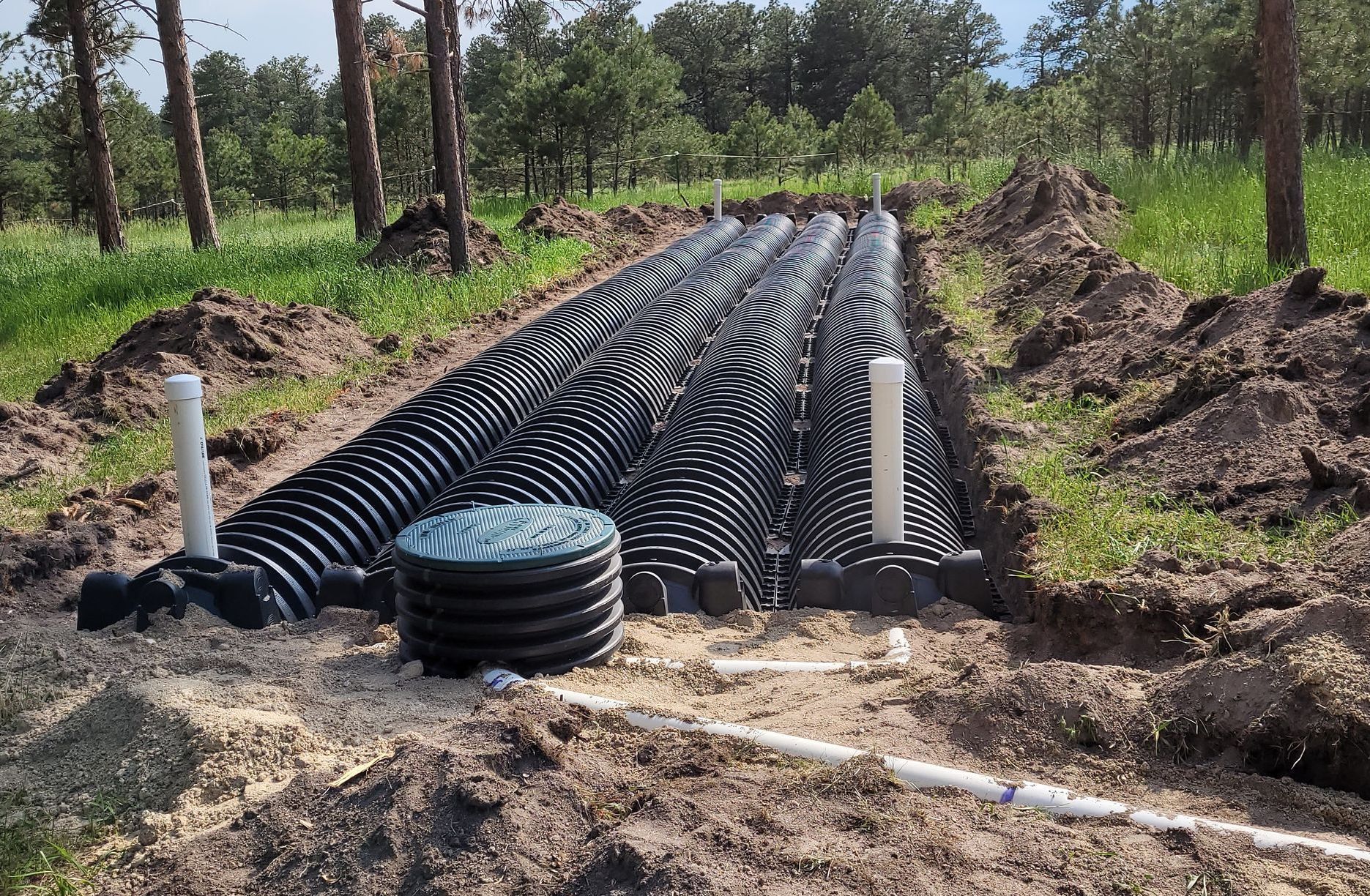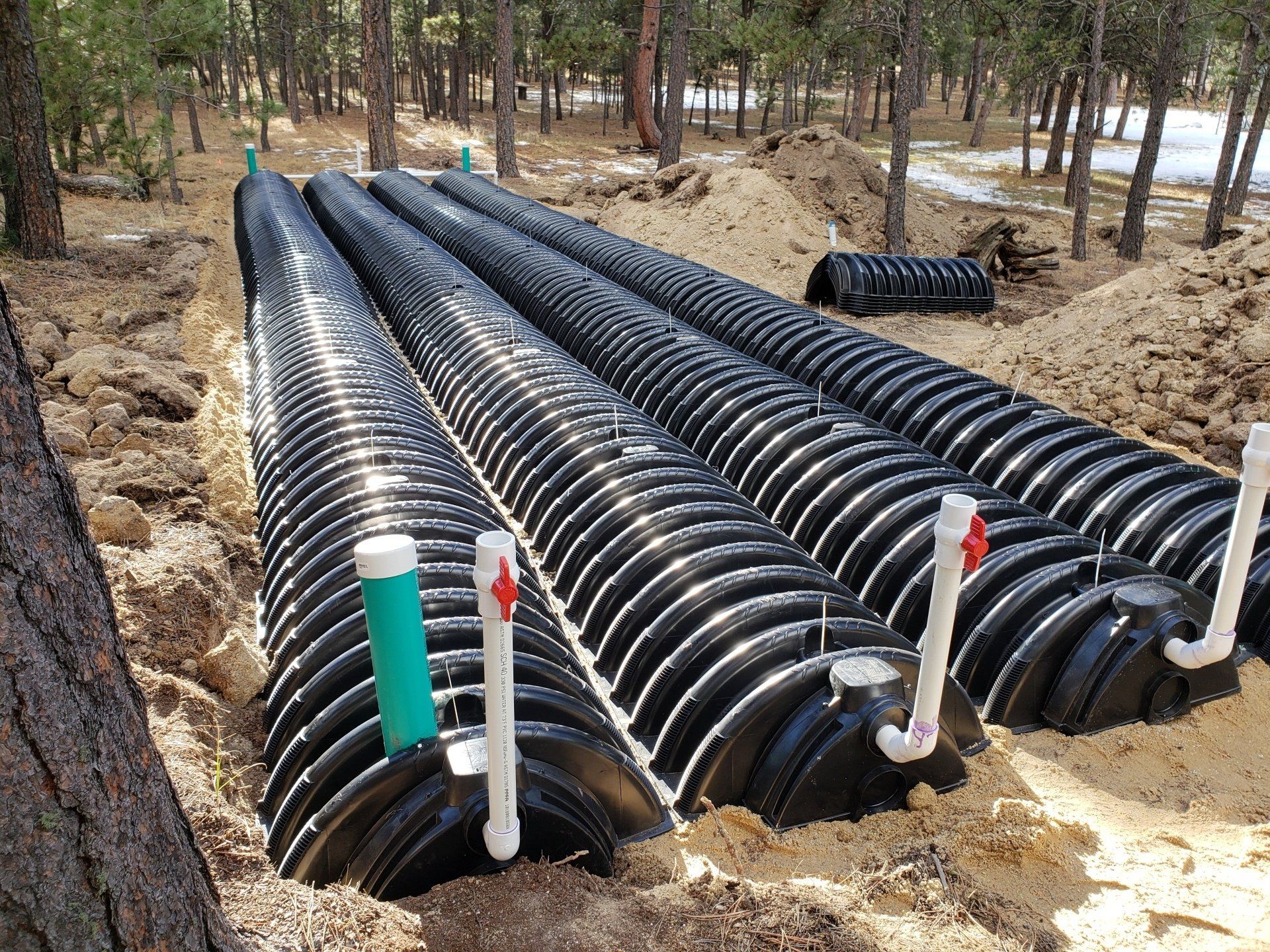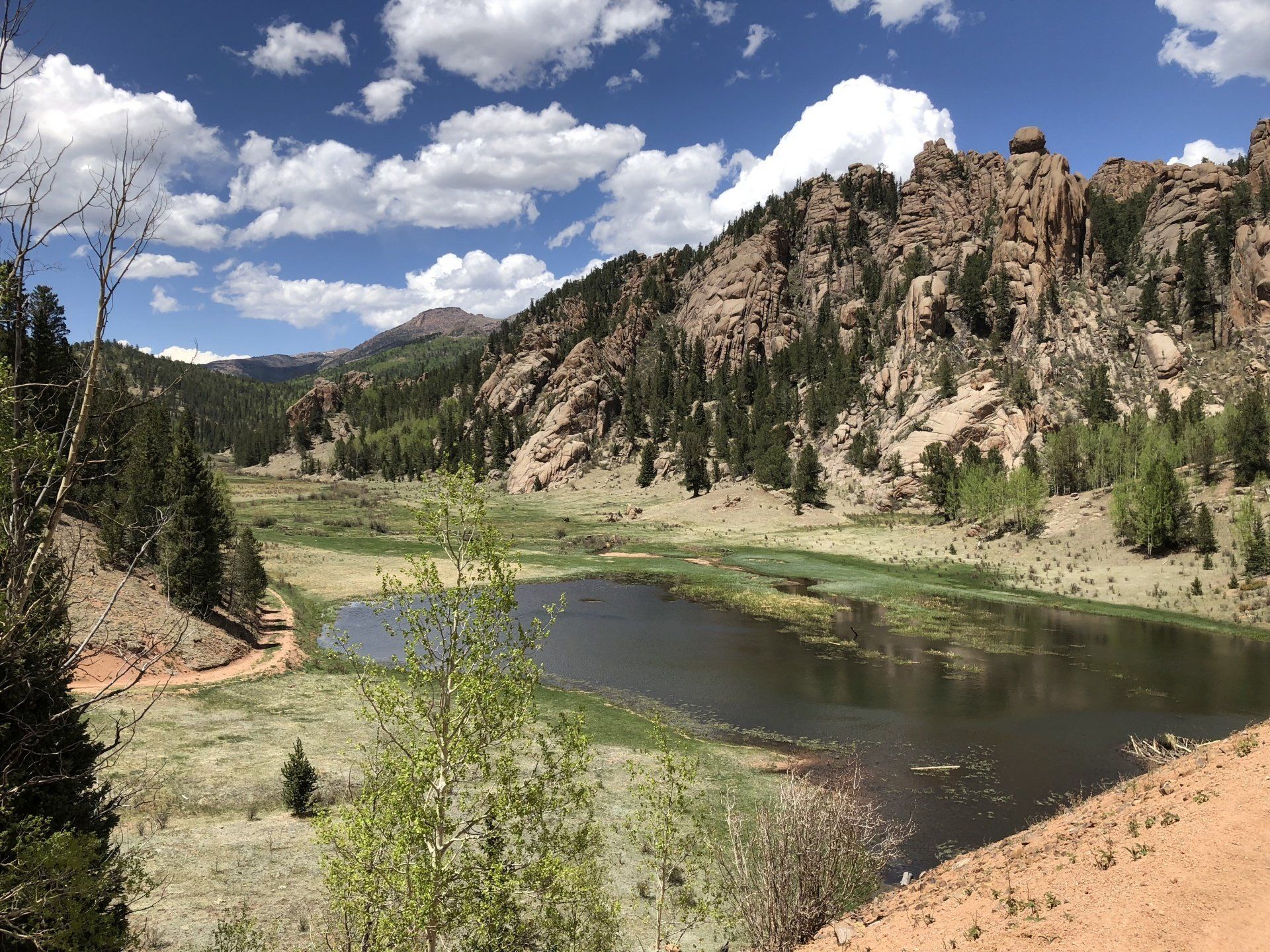In the realm of septic system installation, precision and thoroughness can make all the difference between a satisfactory outcome and a costly headache. At Innovative Process Engineering, we pride ourselves on going beyond the ordinary to ensure that your property receives nothing short of the best. Here's why we're more thorough than the competition:
-
In-depth Property Exploration: While some may skim the surface, we delve deep into understanding your property's unique characteristics. We take the time to explore every nook and cranny, meticulously examining soil conditions and topography to unearth the most suitable placement for your septic system.
-
Savings through Soil Selection: Designing and installing in optimal soils isn't just about efficiency—it's about saving you significant costs. By identifying and utilizing the best soil conditions, we can slash more than 50% off the total expense of a new or replacement system. Our commitment to finding the right soils isn't just about quality—it's about delivering exceptional value to our clients.
-
No Rush, Only Precision: When we step onto your property, we leave haste at the door. Our team isn't bound by tight schedules or quick turnarounds. Instead, we dedicate the time and effort needed to ensure that every aspect of your septic system installation is executed with precision and care. We're not just here to finish the job—we're here to get it right.
-
Going the Extra Mile: Mediocrity has no place in our vocabulary. We believe in going above and beyond to exceed your expectations. Whether it's scouting for the perfect soil composition or fine-tuning the design to maximize efficiency, we're committed to going the extra mile to deliver results that speak for themselves.
In the realm of wastewater management, the role of a skilled and knowledgeable septic engineer cannot be overstated. As we navigate the challenges of maintaining clean and sustainable environments, particularly in regions characterized by diverse climates, the significance of a licensed septic engineer becomes even more pronounced. In this blog post, we will delve into the essential reasons why hiring a specialized septic engineer during the spring season is paramount for effective wastewater solutions.
- Seasonal Challenges:
Spring brings with it unique challenges for septic systems. Thawing ground, increased precipitation, and fluctuating temperatures can significantly impact the functionality of septic systems. A septic engineer is well-versed in understanding these seasonal nuances and can implement strategies to mitigate potential issues, ensuring the smooth operation of your septic system.- Preventing Spring Thaw Issues:
The thawing of frozen ground during spring can lead to drainage problems and potential damage to septic systems. A qualified septic engineer can assess the vulnerability of your system to spring thaw runoff, recommending preventive measures such as proper insulation, drainage solutions, and system upgrades to withstand the seasonal changes.- Optimizing Drainage in Wet Conditions:
Spring often brings increased rainfall, leading to saturated soil conditions. Septic systems rely on proper drainage to function effectively. A septic engineer can evaluate your property's drainage capabilities, recommending adjustments or enhancements to prevent waterlogging and maintain the optimal functioning of your septic system.- Routine Maintenance and Inspection:
Spring serves as an ideal time for routine maintenance and inspection of septic systems. Engaging a septic engineer during this season allows for a thorough assessment of the system's components, including tanks, pipes, and drainage fields. Identifying and addressing potential issues early on can prevent costly repairs and ensure the longevity of your septic system.- Environmental Considerations:
Sustainable wastewater management is crucial for environmental preservation. A septic engineer understands the ecological impact of septic systems and can offer eco-friendly solutions, such as implementing advanced treatment technologies or recommending practices that minimize the environmental footprint of your wastewater disposal.Conclusion:
In conclusion, recognizing the importance of a septic engineer is integral to maintaining a reliable and sustainable wastewater management system. By addressing seasonal challenges, preventing issues related to spring thaw, optimizing drainage in wet conditions, conducting routine maintenance, and considering environmental factors, a specialized septic engineer plays a pivotal role in safeguarding both your property and the surrounding environment. Make informed decisions this spring by prioritizing the expertise of a qualified septic engineer for the well-being of your septic system and the community at large.
In the picturesque landscapes of Colorado Springs where nature's beauty is abundant, the importance of clean water cannot be overstated. As a seasoned septic engineer dedicated to preserving the environmental integrity of this region, I am compelled to share insights into effective water treatment strategies. In this blog post, we will explore the unique challenges faced by residents and businesses in Colorado Springs regarding water quality and discuss the role of septic systems in ensuring a sustainable and clean water supply.
Understanding the Water Challenges:Colorado Springs and its neighboring areas are known for their arid climate and fluctuating water availability. As a result, residents often rely on groundwater sources and septic systems to manage wastewater. However, these decentralized wastewater treatment systems can pose challenges, especially if not properly maintained.
Septic Systems: The Backbone of Water Treatment:Septic systems play a crucial role in managing household wastewater in areas without access to centralized sewage treatment. Properly functioning septic systems not only protect the environment but also the health and well-being of the community.Key Steps for Effective Water Treatment:
- Regular Maintenance: Regular septic system maintenance is essential to prevent issues such as leaks and overflows. Schedule routine inspections to ensure that your septic is functioning optimally.
- Proper Disposal Practices: Proper disposal practices to avoid flushing harmful chemicals or substances down the drain. This helps maintain the balance of the septic system and prevents contamination of groundwater.
- Upgrading Systems: In some cases, older septic systems may not meet current environmental standards. Consider upgrading to more modern and efficient systems to enhance water treatment capabilities.
- Efficient Water Use: Adopt water-efficient practices to reduce the strain on septic systems. Simple measures, such as fixing leaks and using water-saving appliances, can make a significant difference.
- Community Awareness: Raise awareness about the importance of water treatment within the community. Engage in educational programs to empower residents with the knowledge needed to contribute to water conservation efforts.
The Future of Water Treatment in Colorado Springs:As a septic engineer, my vision for the future involves a community that understands the vital role of water treatment and embraces sustainable practices. By working together to maintain and upgrade septic systems, we can ensure clean water for generations to come.Conclusion:Preserving the natural beauty of Colorado Springs and its surroundings requires a collective effort to address water treatment challenges. As a dedicated septic engineer, I am committed to guiding residents and businesses toward sustainable practices that safeguard our precious water resources. Together, we can create a future where clean water flows freely, sustaining the vibrant ecosystem of this picturesque region.

confusing road to getting a system.
This will walk you through several scenarios.
Septic systems are designed primarily based on two things: number of bedrooms and soil quality. More
bedrooms require a larger system. Good sandy soil can be a smaller system – clayey soil results in a
larger system.
If you have no existing system and need a new one:
• You need a soil test on two (minimum) profile pits dug 8 feet deep. We do this with excavation
contractors we work with.
• We need to be present to observe the soil characteristics and obtain samples.
• You let us know how many bedrooms will be served
• We provide a Profile Pit Report detailing if an Engineered system is required
• Some counties require a septic system permit to be issued prior to a Building permit.
If you need an Engineered system:
• We use the soil report and the number of bedrooms to design a system compliant with local
regulations.
• We sometimes offer a choice of a larger size system without pumping or imported sand, or a
smaller system with pressure dosing and possibly sand.
• We work with you to design the most economical system compliant with your wishes and local
regulations.
If you have an existing system in good condition but want to expand:
• Depending on when your previous system was installed we may need soil information.
• We would excavate one pit up to 8 feet deep to characterize the soil according to the latest
methods.
• The pit will give an updated capacity determination of the exiting system and direct the design
of any expansion, if necessary.
If you have a failed system:
• We would ask that you have an inspection to determine if the tank(s) are still in good condition.
• If the only need is a new field, we would excavate and examine two test profile pits and analyze
the soil type.
• With the soil type and number of bedrooms served we design a new field known as a Soil
Treatment Area (STA)
• If the new field requires pressurized dosing, we design a new 500-gallon pump tank next to the
existing septic tank.


Here at Innovative Process Engineering we want to answer any question. Some of my blog will explain who your talking to and what we do different!
One of the most common concerns for people is "who will I talk to". Here at Innovative Process Engineering the answer is the owner he as a ultimate interest in your service. We want to make sure we listen to your concerns and explain options rather than dictate a supposedly expert solution.
We are also interested in providing the best overall solution, not just a product or service. At Innovative Process Engineering we are a company that understands value therefore we do not upsell or over charge on any treatment or service we provide
We know when you call it is your property and your money. Our best interest is to help you expand that that is why we answer phones and emails with quickness and with all the water treatment and septic needs we able to do the job faster than the competition.
We work all over Colorado and other states! making sure everyone is provided with a honest service.
Contact Us
We will get back to you as soon as possible
Please try again later
About Us
Innovative Process Engineering is a Licensed Engineering Company providing Septic System and Water Treatment Services in Colorado Springs, Colorado and Surrounding Areas. Contact us today for more information.
Contact Info


